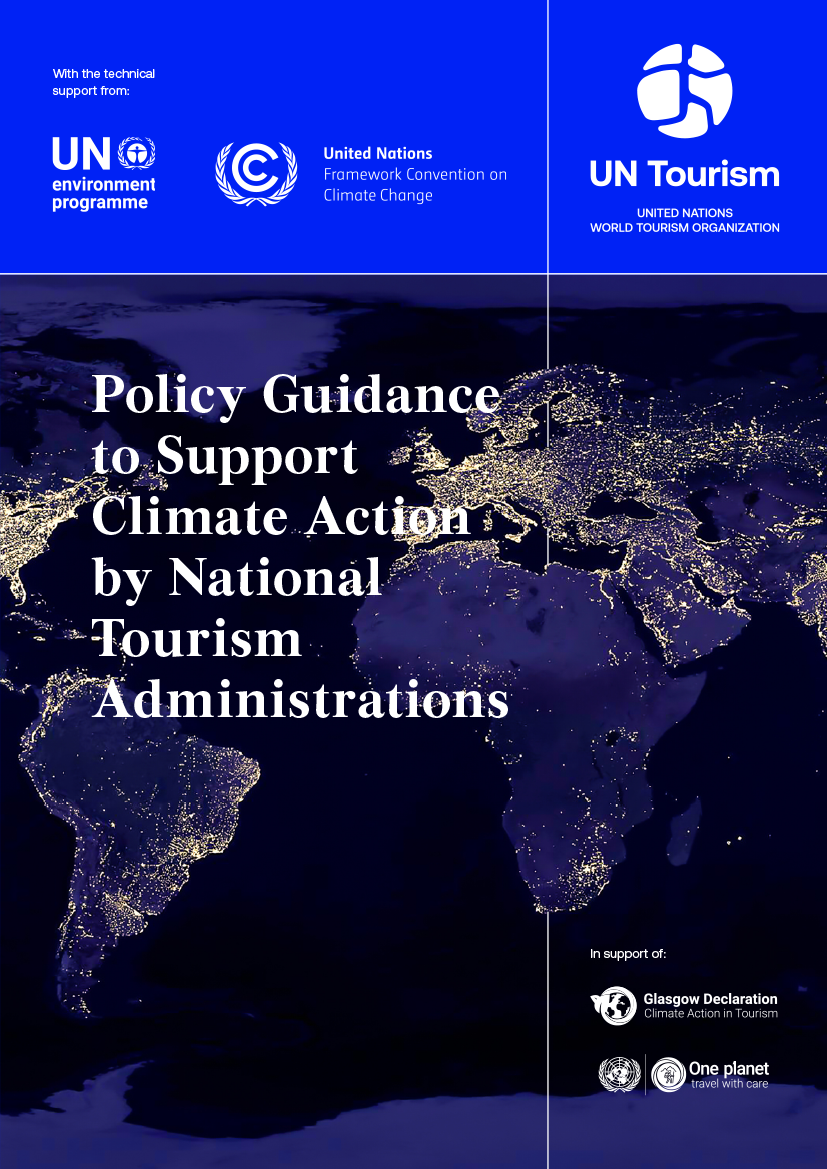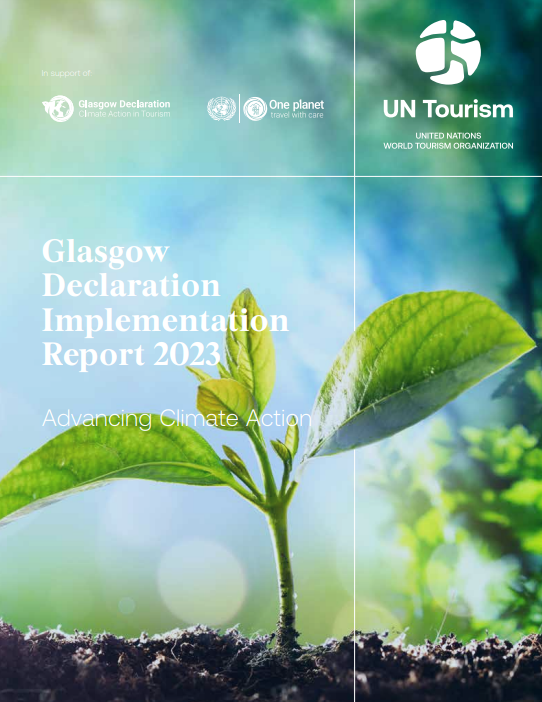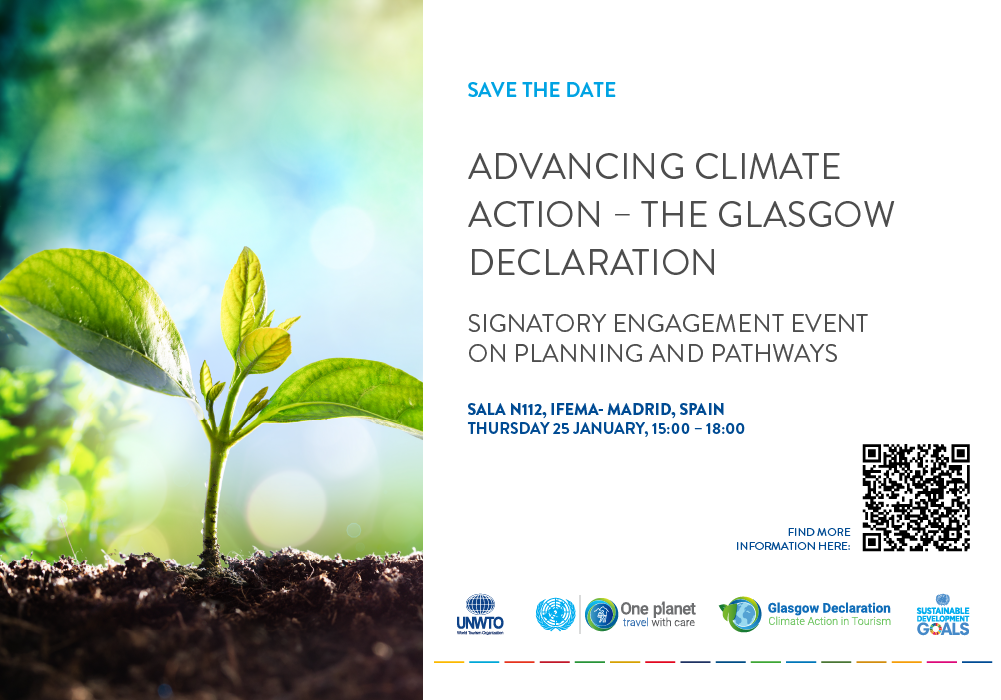CASE STUDY FROM BUCUTI & TARA BEACH RESORT, ARUBA: HOW CERTIFICATION HAS STEERED BUCUTI & TARA’S CLIMATE ACTION
For Bucuti & Tara’s Owner/CEO Ewald Biemans, the challenge is to keep improving how sustainable his hotel is, and keep reinvesting the benefits into getting better still.
The case study has been provided by BUCUTI & TARA BEACH RESORT in support of Climate Action in the Tourism Sector – An overview of methodologies and tools to measure greenhouse gas emissions demonstrating the value of taking action to measure emissions and accelerate climate action.
Bucuti & Tara’s journey to becoming the Caribbean's first certified Carbon Neutral resort began over 50 years ago, when its CEO Ewald Biemans arrived on the island of Aruba, which he remembers as being “the picture postcard of pristine’. Born on a farm, Biemans says he had always been close to nature, and the story of his own environmental awakening is itself a tour of landmarks of early environmentalism - from reading Rachel Carson’s Silent Spring, to experiencing the impacts of the oil crises of the 70s, to following the first Earth Summit in Rio in 1992.
It was from Rio that he discovered the hotel sustainability certification organisation Green Globe. He signed up Bucuti, becoming the first hotel in the Caribbean to do so, and this set him and his hotel on a path that they have followed ever since, one of being guided on their mission to become ever more sustainable by following the roadmaps provided by a range of different certification schemes.
The Bucuti approach has been to build ever greater layers of detail to its sustainability through working in ever more complex sustainability programmes, starting with Green Globe, building up into ISO, and then using LEED to guide the design of their new building, called Tara. Biemans urges anyone in tourism to follow their approach and get certified, whether working with LEED to develop a new building, or using the likes of Green Globe and Travelife to provide support with general management of a property. Building its own sustainability in this way, Bucuti & Tara became Certified Carbon Neutral in 2018, was the only hotel to win the Global UN Climate Action Award in 2020, was a launch signatory of the Glasgow Declaration on Climate Action in Tourism in 2021, and is now working towards reaching Net Zero in 2023, and then becoming Climate Positive.
Every emission counts
Such attention to detail means measurement touches every facet of the company’s operations and every emission that could possibly incur in a hotel, including with the staff, management, all business travel and staff commuting, as well as the procurement of goods and services. Keeping track of all this involves not just a sustainability manager and green team, but also the support of external expertise through the US-based consultancy OBM. In everything the company does, the focus is on continually improving, with whatever it saves through greater energy efficiency ploughed back into the business to make it yet more efficient. “How much money do we save through all our efforts?” comments Biemans. “I have no idea. All I can tell you is it has helped us tremendously.”
Just as the certification schemes have helped Bucuti & Tara develop its approach to measurement, so too they have guided its work on decarbonisation, helping the resort become continually more efficient in every aspect from energy and water consumption to reducing food waste and reducing general waste by an astounding 65%.
"Each initiative gets them a step further on the path to being carbon negative”
In late 2016, Bucuti completed its installation of photovoltaic solar panels, which provide 15% of Bucuti’s energy needs. Combined with 25% island-sourced energy produced by wind turbines and solar panels, the resort runs on 40% clean energy. The goal is to continue to increase this both by continuing to support the green energy development locally and potentially procuring more panels at the resort.
That same year, the hotel worked out that 30% of food in each meal was wasted, so it reduced portion sizes, resulting in less food waste and a cut in the associated carbon footprint, and all without negatively impacting guest satisfaction. Two years later, the resort worked with the World Wildlife Fund to further reduce food waste by another 30%, all without compromising the guest experience. Whatever food waste now remains the hotel donates as scraps and leftover food to local farmers for their animals.
Water in the accommodations and in the hot tub is solar heated. Equipment in the gym generates electricity. The resort vehicles are replaced by Electric Vehicles (EVs). They’ve even painted the hotel facade and interiors with an insulating coating that keeps the warmth of the sun’s rays out, and the cool from the air-conditioning in. Combined with a more efficient air-conditioning system in one wing this has delivered a 15% reduction in energy consumption in that wing which makes for an additional 14% decrease in energy consumption for the entire resort. Thanks to all these measures and more, Biemans reckons that by the end of 2023 the resort will be close to being Net Zero.
Beyond Bucuti
Attention is also given beyond the resort’s own impacts - there are complimentary EV charging points for guests and staff. The island’s first EV taxi company is given priority when guests need transfers. And the resort even offers financing to employees for sustainable initiatives of their own, including buying EVs, solar panels, water saving equipment and more.
Looking further afield still, Biemans has founded an organisation to reforest a 30-acre piece of land on Aruba that he had bought several years ago. It is the Bucuti & Tara -GMC Nature Preserve. The land is community managed with local Ban Lanta Y Planta heading reforesting efforts. Located in the middle of the city, it provides a green space, somewhere to walk and exercise, and eventually delivers carbon credits for its role in sequestration also known as a carbon sink. Added to which, the company also supports a wind farm on the island, and also buys credits from a wind farm IN ARUBA AND in India.
Each initiative gets them a step further on the path to being carbon negative, and being able to use the surplus energy it produces to account for some of its guests’ emissions. “The customer should feel that they are going to Aruba, and from their home to their return they have had a 100% sustainable, net-zero vacation,” explains Biemans. “That's the core of the whole idea, the great goal.”
External source(s)



